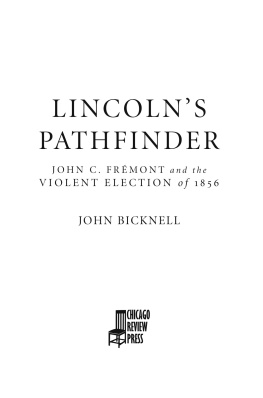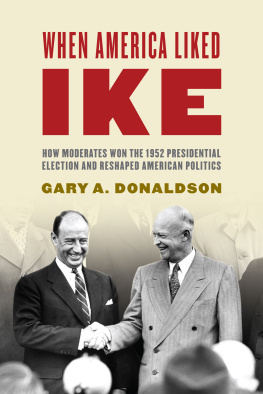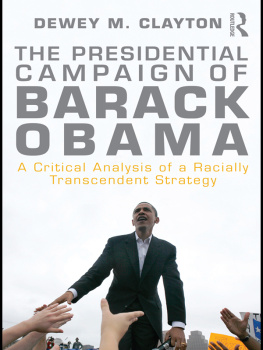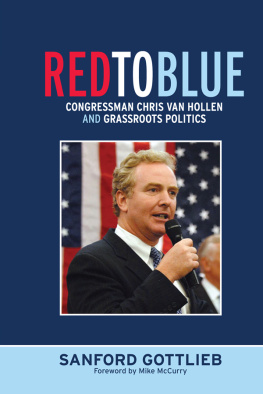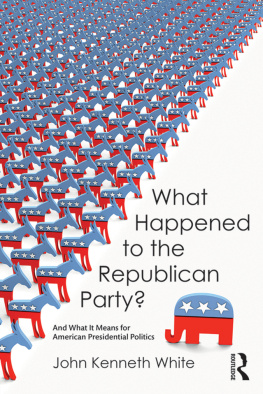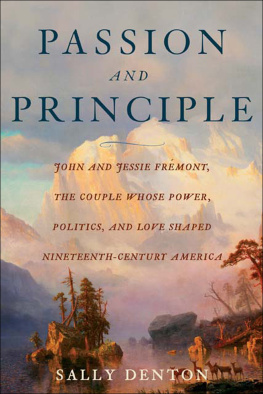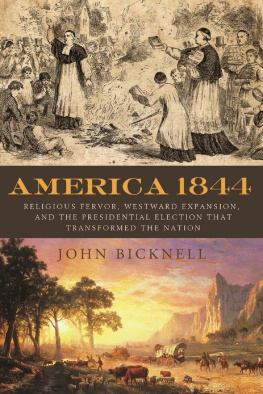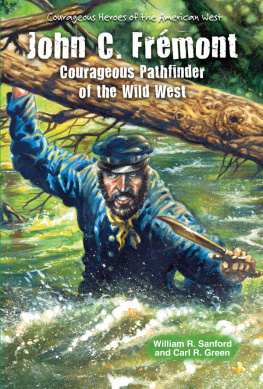Sommaire
Pagination de l'dition papier
Guide
Copyright 2017 by John Bicknell
All rights reserved
Published by Chicago Review Press Incorporated
814 North Franklin Street
Chicago, Illinois 60610
ISBN 978-1-61373-800-9
Library of Congress Cataloging-in-Publication Data
Names: Bicknell, John, author.
Title: Lincolns pathfinder : John C. Frmont and the violent election of
1856 / John Bicknell.
Description: Chicago, Illinois : Chicago Review Press, 2017. | Includes
bibliographical references and index.
Identifiers: LCCN 2017006150 (print) | LCCN 2017008234 (ebook) | ISBN
9781613737972 (hardback) | ISBN 9781613737989 (PDF edition) | ISBN
9781613738009 (EPUB edition) | ISBN 9781613737996 (Kindle edition)
Subjects: LCSH: Frmont, John Charles, 18131890. | PresidentsUnited
StatesElection1856. | Presidential candidatesUnited
StatesBiography. | United StatesPolitics and government18531857. |
BISAC: HISTORY / United States / 19th Century. | HISTORY / United States /
Civil War Period (18501877).
Classification: LCC E415.9.F8 B49 2017 (print) | LCC E415.9.F8 (ebook) | DDC
324.973/09034dc23
LC record available at https://lccn.loc.gov/2017006150
Typesetting: Nord Compo
Printed in the United States of America
5 4 3 2 1
This digital document has been produced by Nord Compo.
For Gary
Beneath thy skies, November
Thy skies of cloud and rain,
Around our blazing camp-fires
We close our ranks again.
Then sound again the bugles,
Call the muster-roll anew;
If months have well-nigh won the field,
What may not four years do?
John Greenleaf Whittier,
A Song Inscribed to the Frmont Club, National Era, November 20, 1856
Introduction
The Pathfinder
J ohn C. Frmonts reputation as the Pathfinder rested on the accomplishments of his five expeditions to the West, in which he explored the Rocky Mountains, the Oregon Trail, the Sierra Nevada, and other territory that was admittedly inhospitablebut nevertheless previously explored.
Frmont was not so much a pathfinder as he was a path populizer. Beginning with the reports on his 1842 and 184344 journeys to Oregon andagainst ordersUtah and California that were lovingly edited by his wife, Jessie Anne Benton Frmont, the army officer gained a level of fame rare for a soldier who was not a hero in arms.
The Frmonts Report of the Exploring Expedition to the Rocky Mountains in the Year 1842, and to Oregon and North California in the Years 184344, published in 1845, became an instant bestseller and all but holy scripture for immigrants heading west. Johns detailed observations and Jessies romantic notions and talents as an editor combined to cast the West in an entirely new light for many Americans. Previously derided as the Great American Desert, easterners began to see the possibilities in the new land, thanks in large part to the sweeping grandeur of the Frmonts prose.
John C. Frmont, though a naturally reticent man, reveled in the glory. For the next decade and more, he was one of the most admired men in the country. Seventeen towns and counties were named or renamed in his honor, stretching from New Hampshire to Nebraska, which was not yet even a state. Far from a mere fifteen minutes of fame, Frmonts moment would endure twelve years, and he would make the most of that moment while it lasted, through multiple expeditions, triumphs and travails in the Mexican War, disputes with his powerful father-in-law, Missouri senator Thomas Hart Benton, legal wrangling over a gold mining claim in California, election as that states first senator, and finally, nomination as the first presidential candidate of the new Republican Party.
And Jessie Benton Frmont would be right there every step of the way. Much more politically savvy than her husband, she was an aide-de-camp to her father, that most boisterous proponent of westward expansion, who was her husbands great political patron and protector and a volatile man whose relationship with his favorite daughter was unusually close and periodically tempestuous.
Her husband knew what he had in Jessie, and he was not reluctant to make use of the asset. She would play a role in the 1856 presidential campaign unimagined by any wife before her. Her own participation was unique enough, but it also marked the first time a cause and campaign of a major political party resonated with womenand with free people of color. The Republican Party was no bastion of equal rights, to be sure. While some abolitionists attached themselves to the party, its senior leadership and party platform claimed no more than an opposition to the extension of slavery into new territory. Some of these menthough not Frmontwere as racist as the slavery-supporting Democrats they opposed, although the foremost historian of the early days of the Republican Party wrote that what is striking about Republican rhetoric during these years is not how often one encounters racist declarations, but how infrequently. The party of Free Soil, Free Men, and Frmont inspired a hope that things might be better, a hope that had never really existed until 1856. For many African Americans in antebellum America, that was astonishing enough.
Frmont would lose the election of 1856 to James Buchanan, who would go on to lead what many consider to be the most disastrous presidential administration in American history. Frmont would servenot terribly successfullyin the war that followed. Both he and his wife would cause the commander in chief no small measure of grief.
But in 1856, the Pathfinder who had made his fame by following in the footsteps of others would, after all, blaze a trail. His campaign, unique in the annals of politics to that time, showed the way to victory for another candidate, a man less reticent personally and more prepared temperamentally for the rigorous challenge of national crisis. Where John C. Frmont led, Abraham Lincoln would follow.
Prologue
We Cant Conceive
of a Greater Piece of
Mischief
C ongressman Abraham Lincoln had worked hard to elect Zachary Taylor president in 1848, and now, as Taylor took office and Lincoln left Congress after just one term, the congressman wanted his just reward.
The Illinois Whigs two years in the House were marked by his opposition to the Mexican Warthe successful war of conquest that made Taylor a hero and got him elected president. But Lincoln had set aside Taylors participation in the war he opposed as he campaigned tirelessly for the candidate, a career military officer, a slave owner, and a political blank slate. Lincoln had traveled extensively on Taylors behalf, making speeches in Delaware, Maryland, and Massachusetts, as well as around his home state, and helped to disseminate mailings of pro-Taylor speeches and broadsides.
In return for his efforts, Lincoln wanted to be named commissioner of the General Land Office, a plum job for a westerner, in charge of managing and selling public lands. This is about the only crumb of patronage which Illinois expects, Lincoln wrote, and whether it went to him or some other loyal Taylor supporter, he was insistent that it come to his state.
It did, but not to Lincolns satisfaction. Despite his pleas that the appointment of Chicagoan Justin Butterfield will be an egregious political blunder that will give offence to the whole Whig party here, Butterfield got the job.
Butterfield, like Lincoln, was an Illinois lawyer born elsewhereNew Hampshire, in Butterfields case. One of his claims to fame was that he had once represented Mormon prophet Joseph Smith in federal court. Like Lincoln, he was a devotee of Whig icon Henry Clay. Unlike Lincoln, Butterfield had stuck with Clay in the brief contest for the Whig nomination the previous year, having fought for Mr. Clay against Gen. Taylor to the bitter end.

